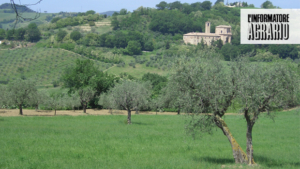
Its centrality is dictated by a double pressure: the growing awareness of consumers and the stringent European legislative directives. On the one hand, the modern consumer is increasingly demanding, looking not only for quality, but also for transparency and guarantees on the environmental and ethical impact of products.
This question pushes agricultural and agri-food companies to integrate sustainability into practices and communication. On the other hand, the EU Greenwashing Directive (which will be implemented by spring 2026) prohibits "self-certified" sustainability labels, making third-party verification mandatory for any "green claim", imposing seriousness and objectivity.
The Relaunch Decree (July 2020) established a " sustainability certification system " for the wine supply chain, which can be extended to other agri-food supply chains at Masaf.
A path that, however, is struggling to take off. A concrete and potentially already usable option for agricultural and agri-food companies that are looking for a third-party certification on sustainability is instead Made green in Italy (Mgi). It is the voluntary national scheme promoted by the Ministry of the Environment and Energy Security (Mase) for the evaluation and communication of the environmental footprint of Italian products in all sectors.
The goal of the Mgi is to promote products with good or excellent environmental performance, making them recognizable to consumers through a logo that encourages informed choices. Made green in Italy is the scheme, made available by Mase, which can also be used by the agri-food sector, to quickly certify sustainability through third-party bodies recognized by Accredia.
The measurement of environmental performance is based on a comparison with a benchmark (a category reference standard) and classifies products into three classes: A (above the benchmark, excellent), B (close to the benchmark, good level) and C (below the benchmark).
Only products in class A and B (the latter with a commitment to improvement) can obtain the Mgi logo. Mase grants the license to use the logo for three years, subject to positive verification by a recognized body such as CSQA , the first to have obtained Accredia accreditation for the Mgi.
[…]
Source: L'Informatore Agrario